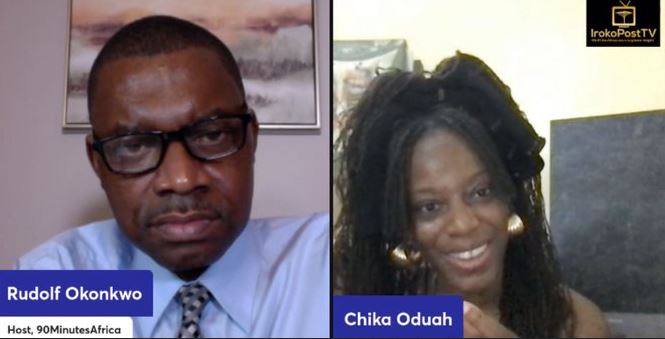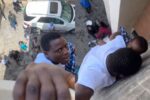Rescued Chibok Girls In U.S. Thriving, Those In Nigeria Abandoned By Government – Award-Winning Journalist, Chika Oduah

Chika Oduah, the award-winning journalist, has stated that the rescued Chibok girls who were relocated to the United States have now been fully integrated into American society.
In contrast, the Nigerian government abandoned their counterparts who remained in Nigeria. The journalist made the remarks during an exclusive interview with Rudolf Okonkwo on 90MinutesAfrica.
Ms. Chika, who was the first journalist to visit Chibok after the abduction of the girls by the Islamic terrorist group Boko Haram in April 2014, revealed that many of the girls in America have gotten married and have fully integrated into the US society.
She, however, claimed to have received a message from one of the many girls who remained in the town in Borno State asking for help as the Nigerian government had long abandoned them.
“I got a message from one of them a few weeks ago saying that the government has stopped paying her school fees and asking for my help. Obviously, these ones who were taken back to Chibok have been abandoned by the government,” the writer said.
She also hailed the organizers of the Bring Back Our Girls (BBOG) for their amazing work in bringing the attention of the world to the shocking incident of the abduction in 2014.
She said, although most of the leaders of the movement are now focused on tackling other ills in Nigerian society, their hearts are still on the campaign to rescue the remaining missing girls.
The poet cum dancer also spoke about the activities of the proscribed Indigenous People of Biafra (IPOB) led by the detained secessionist agitator, Nnamdi Kanu. She worries over how the group conducts its activities in the southeast.
“I didn’t know that IPOB would descend to the level of killing the people they claim to be fighting for in such a cruel, brutal way,” Chika Oduah said.
“I get reports from some security officials on the ground in the southeast, and the things I hear are very disturbing. This is reminiscent of many cases in history where those who claim to be representing the people end up hurting them.”
She cited the example of the Monday sit-at-home directive across the five southeast states. She blamed the group for suppressing the region’s people economically through it.
It should be noted that IPOB has repeatedly denounced the Monday sit-at-home orders in southeastern Nigeria, asserting that these directives are unauthorized and not sanctioned by the group. IPOB’s leadership has emphasized that such orders are often propagated by individuals or factions not affiliated with the official organization.
In a notable instance, a viral video circulated in October 2024, featuring an unidentified individual calling for a two-day sit-at-home on October 21 and 22, citing anticipated activities by “Biafran soldiers.” IPOB promptly disowned this call, with spokesperson Emma Powerful stating that the group did not issue any such directive and urging residents to disregard the order and continue their daily activities.
Furthermore, IPOB has distanced itself from Simon Ekpa, a Finland-based figure who has been associated with enforcing sit-at-home orders. The organization clarified that Ekpa does not represent IPOB and that his actions are not in line with the group’s objectives.
But despite IPOB’s clear stance, the Monday sit-at-home practice has persisted in some areas, primarily due to fear of violence or retribution from unauthorized enforcers.
However, Chika insists that despite the group’s shortcomings, “the support for the Biafra cause is still very strong in the region even though many people have begun to question the methods being used by IPOB.”
The journalist also accused the Nigerian government of blocking the website of her Biafra War Memories Project in the country.
She said the Nigerian IP address of the project had been blocked since 2018, thereby denying people in the country the opportunity to access the over one hundred interviews that she has had with people who witnessed the genocidal war of 1967 – 1970.
“It’s a real plight that the Biafra war is such an inconvenient conversation in Nigeria,” Ms. Oduah said.
“The website of the Biafra War Memories Project, which I started in 2017 and in which I have interviewed hundreds of people, cannot be accessed from Nigeria because it was blocked by the government. The blockage happened around 2018, and till today, it has not been lifted.”





